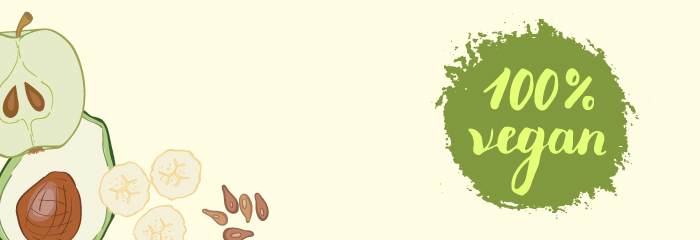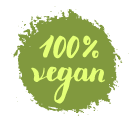The Rise in Veganism and Egg Alternatives

The number of vegans in Britain has risen by more than 360% over the past decade. This means that there are now more than half a million vegans in Britain, making it one of the countries fastest growing life-style trends. Over 40% of vegans are aged between 15-34, but a healthy 14% are over 65. Most vegans live in urban areas. In addition to this more people are choosing to be “part time vegans”, meaning they include many vegan meals in their diet but occasionally eat animal products.
Reasons for the rise in veganism include the potential health benefits of a plant based diet, as well as environmental and welfare issues. Many people do not want to support industries that inflict pain and suffering on animals as well as contributing to the destruction of rain forests and rising carbon levels.
Vegans do not eat meat, seafood, dairy products, eggs or honey. Foods that are certified vegan are now widely available in health stores, supermarkets, restaurants and cafés.
Many non vegans avoid eggs, dairy and other animal products due to adverse reactions to these foods. Finding suitable replacements for these in recipes can be tricky. So, whether you are wanting to reduce or avoid animal products for health, compassionate, environmental or financial reasons we have lots of ideas to help you eat a tasty and healthy diet.
For more information see blogs on Vegan dairy alternatives, Vegan protein and Vegan oils
Egg Substitutes
- Soaked ground flaxseed – the mucilaginous gel that these produce has similar binding properties to eggs. Soak 1 tbsp ground flaxseeds in 3 tbsp water for 10 minutes or more and use to replace one egg in baking.
- Chia flour – soak a tablespoon of chia flour in 3 tablespoons of water to replace eggs in baked foods such as cakes or biscuits.
- Silken tofu – can be used to make scrambled tofu instead of scrambled eggs. Heat some olive oil in a pan add turmeric, cumin and coriander, stir in the tofu and cook for a few minutes. Season with salt and pepper. Sprinkle on parsley or coriander and a dash of tamari and serve on toast.
- Mashed bananas, pumpkin purée, avocado or apple sauce – can be used in baked goods such as cakes as binding agents or to make delicious vegan mousses.
- Vinegar & baking soda – combining 1 tbsp vinegar with 1 tsp baking soda. The resulting reaction releases carbon dioxide that raises the batter.
- Aquafaba – this literally means bean water and is the water drained from cans of chickpeas (or other pulses). It can whipped up and used as a substitute for egg whites.
Here’s a recipe for a delicious vegan chocolate cake. No one will miss the eggs or butter!
Vegan Chocolate Orange Cake
250g/9oz self raising flour
2 level tsp baking powder
250g/9oz caster sugar
85g/3oz cacao powder
½ cup of boiling water
135ml/9 tbsp oil
250ml/8 fl oz orange juice
Zest of 1 orange
Filling
1 cup of apple or pumpkin purée
3 tbsp almond butter
3 tbsp cacao powder
3 tbsp maple syrup
- Grease or line 2 loose bottomed cake tins.
- Mix the flour and baking powder together in a bowl. Stir in the sugar.
- Combine the cacao powder with the boiling water to form a paste.
- Gradually add the oil, orange juice and orange zest to the cacao paste.
- Add the wet ingredients to the dry and mix to a batter.
- Transfer the mixture to the 2 lined cake tins and bake in the oven on gas mark 3/170C/325F for 45-50 mins, until the top is firm and a knife comes out clean.
- Remove from the oven and allow to cool for a few minutes before removing from the tins.
- To make the filling combine the apple or pumpkin purée with the almond butter, cacao powder and maple syrup in a food processor until smooth.
- When the cakes are cool spread the filling mixture over one cake and put the other on top.
Variations
- Pour melted chocolate over the top of the cake after filling.
- Add vegan chocolate chips to the dry ingredients.
- Decorate the top with glacé cherries or almonds before baking.
